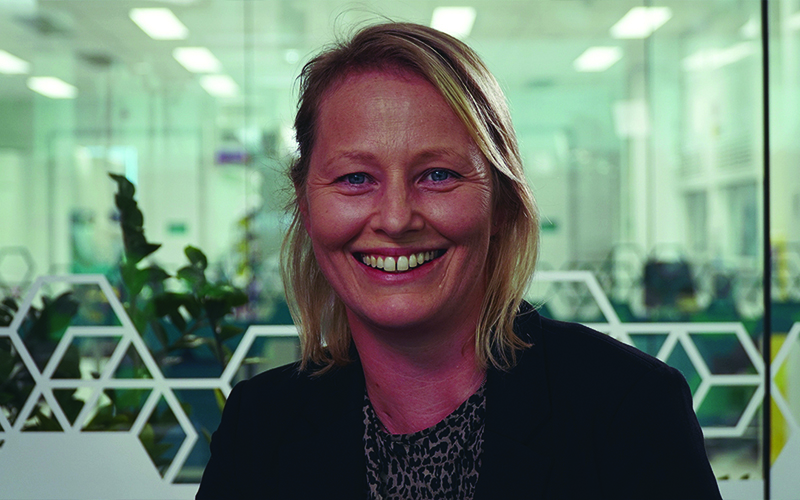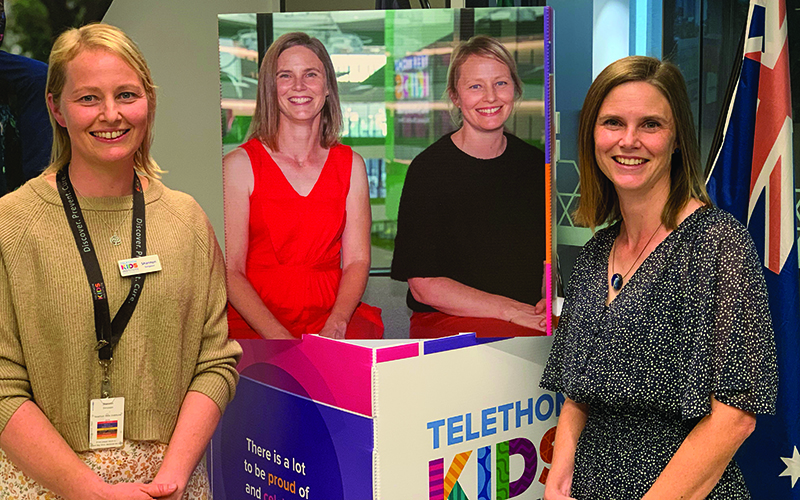
In a global collaboration championed and led by award-winning preterm lung health researcher, Dr Shannon Simpson, the world’s leading preterm scientists and doctors have joined forces to help give babies born very prematurely the best possible life.
For more than a decade, internationally recognised preterm respiratory researcher Dr Shannon Simpson – Head of the Children’s Lung Health team at the Wal-yan Respiratory Research Centre – has dedicated her career to understanding the impact of preterm birth on lung health.
About 15 million babies are born before 37 weeks’ gestation every year (about 11 per cent of global births), with rates of preterm birth increasing worldwide. More than two million of these babies are born very preterm (less than 32 weeks’ gestation) and are at increased risk of chronic lung disease through life.
“We know from research that babies who survive the neonatal period often have significant respiratory complications throughout life,” Dr Simpson said.
“Our work has shown that about half of children born preterm continue to have breathing problems in their primary school years. Most have abnormalities if we image the chest and over a third will have lung function outside the normal range.
“Really recent evidence from our team shows that the lung function of children born very preterm is moving even further away from normal during the primary school years – and this worries us.”
Last year, keen to maximise global efforts to help such children, Dr Simpson established (and now co-chairs) an international consortium of clinicians, researchers and consumers interested in understanding and improving long-term lung health outcomes for those born preterm. Known as PELICAN (Prematurity’s Effect on the Lungs in Children and Adults Network), the consortium is the European Respiratory Society’s fourth paediatric Clinical Research Collaboration.

“I’m really excited to lead this initiative, which will help preterm kids right here in WA and internationally.”
Dr Simpson said that as part of its work PELICAN would establish a harmonised global data repository which pulled together all existing lung health data from cohorts of survivors of preterm birth.
“Our main aim is to understand the impact surviving preterm birth has on the lungs and the natural history of lung disease throughout life, and to determine which neonatal and lifetime exposures contribute to the progression of lung disease in those born prematurely,” she said.
“We hope this work will ultimately lead to better treatments and inform clinical practice and long-term management for those born very prematurely.”
Community Connection
Perth mother-of-four and Tiny Sparks WA co-founder Amber Bates is on the PELICAN Scientific Steering Committee with Dr Simpson. Ms Bates is a member of the The Kids CONNECT program and has been a long-term community advisor on preterm research at the Institute.
“As a mother of a child who was born prematurely, it gives me both comfort and hope to know that the world’s best preterm respiratory researchers and doctors are working together to improve the outlook for our children,” Ms Bates said.
Dr Simpson said it was vital to have community members and those with lived experiences such as Ms Bates involved in research and projects such as PELICAN.
“We’re doing this research for those kids born preterm and their families. We couldn’t do the work we do without their support and input,” she said. “This project is not just a collaboration with scientists and doctors across the globe, it’s also about involving consumers in the direction of research.”

